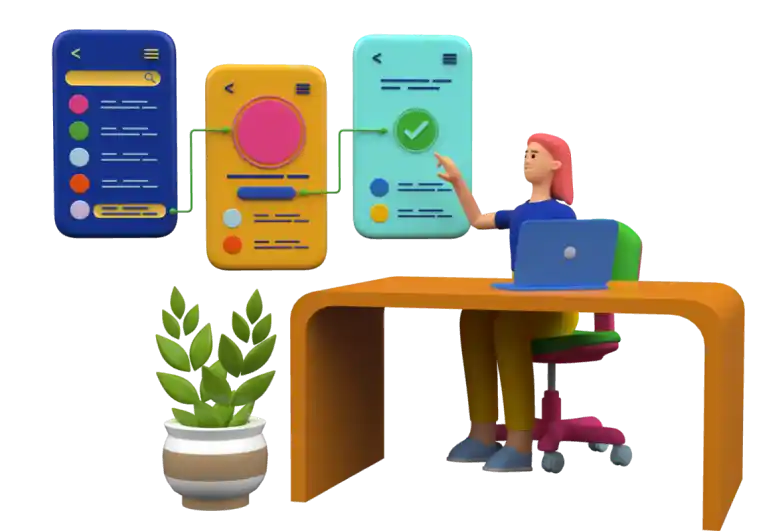Educational apps have redefined learning, offering unprecedented accessibility and engagement through the ubiquitous presence of smartphones and tablets. However, the journey from conception to success in educational app development demands meticulous attention to detail and strategic planning. So, delve deeper into the critical components necessary for crafting an educational app that captures attention and fosters effective learning experiences.
User-Friendly Interface:
The cornerstone of any successful educational app lies in its user interface (UI), the gateway through which learners interact with content. A user-friendly interface is not merely aesthetically pleasing but also intuitive and navigable, ensuring that users can effortlessly access features and content. Prioritizing simplicity and clarity in design is paramount, enabling users to seamlessly navigate the app without feeling overwhelmed. Incorporating intuitive gestures and interactive elements further enhances usability, fostering a fluid and enjoyable learning experience.
Creating Engaging Content:
At the heart of every educational app lies its content, the lifeblood that sustains engagement and drives learning outcomes. To captivate users and facilitate effective learning, developers must prioritize the delivery of high-quality, relevant, engaging, and thoughtfully personalized educational material. Content should be curated meticulously, aligning with the educational objectives, cultural nuances, and preferences of the target audience. Integrating multimedia elements such as videos, animations, interactive quizzes, and gamified elements enriches the learning experience and caters to diverse learning styles, fostering deeper comprehension and retention. This adaptive approach ensures relevance and maximizes user engagement.
Personalized Learning Experience:
Recognizing that learners come with unique preferences, abilities, and learning styles, personalization is key to maximizing the efficacy of an educational app. By leveraging advanced adaptive learning algorithms and data-driven personalized recommendations, developers can tailor the learning experience to meet each user’s individual needs and goals. This customization extends beyond content delivery to include features such as real-time progress tracking, personalized feedback, and adaptive difficulty levels tailored to the learner’s evolving proficiency. By empowering users to learn at their own pace and by their specific preferences and learning paths, personalized learning experiences promote sustained engagement and optimize learning outcomes, thereby enhancing the overall educational journey.
Interactive Features At Your Disposal:
Interactivity lies at the heart of effective learning, stimulating active engagement and enhancing knowledge retention. Integrating interactive features such as gamification elements, simulations, and collaborative activities injects vitality into the learning process, transforming it into a dynamic and immersive experience. Gamification mechanics, such as points, badges, and leaderboards, incentivize participation and motivate users to strive for mastery. Likewise, simulations provide opportunities for experiential learning, enabling users to add theoretical knowledge in practical contexts. Collaborative activities foster social learning experiences, encouraging peer interaction and knowledge sharing.
Accessibility and Inclusivity:
In a diverse and interconnected world, ensuring accessibility and inclusivity is paramount for reaching a broad spectrum of learners and providing equitable learning opportunities. Developers must prioritize education application development that makes it accessible to individuals with disabilities, incorporating features such as screen readers, voice commands, and adjustable font sizes. Moreover, offering content in multiple languages enhances the app’s accessibility and inclusivity, breaking down linguistic barriers and catering to a global audience. By fostering an inclusive learning environment, they empower learners of all backgrounds to engage with content effectively and achieve their learning goals.
Also Read:
Conclusion:
In conclusion, successful educational app development requires a holistic approach encompassing user interface design, content curation, personalization, interactivity, and accessibility. By prioritizing these essential components and leveraging technology to create seamless and engaging learning experiences, developers can unlock the transformative potential of educational apps. As technology continues to evolve, educational apps stand poised to revolutionize the learning landscape, making education more accessible, engaging, and impactful for learners worldwide.
This post was last modified on March 18, 2024 3:50 PM

